Filed under FAQ …
Top 5 Risks for Seniors

I gave a lecture recently regarding the top 5 health issues for seniors and I thought I would translate that into an article. (By the way if you have a group interested in hearing about medical issues contact my office and we’re happy to oblige if we can. I have a lot of information stored in the data banks and I’m happy to give it all at once to a group of people rather than one of the time in office calls. I don’t know if I will entertain you but I know I will educate you.)
The top 5 health dangers to seniors are pills/polypharmacy, falls, heart disease, cancer and dementia. Luckily, with each of these issues there are interventions. -Interventions that are patient based. Interventions that will save you money and make you healthier and that don’t require prescription medication.

Starting with polypharmacy … That’s defined as an increase in the number of medications or use of more medications than is medically necessary. Polypharmacy is common in ambulatory care, hospitals and in nursing homes. Polypharmacy increases the risk of practically everything. According to the NIH polypharmacy increases healthcare costs, increases side effects, increases medication noncompliance, worsens functional impairment, affects cognitive status, increases the risk of falls and incontinence. You can take action here. Carry a list of all your pills including supplements to all your doctor visits. Involve your doctor and your pharmacist in reviewing your list. Don’t to be afraid to challenge your doctor and ask questions. Know what pills you’re taking and why. The more meds you take more dangerous it is. Having practiced for almost 30 years I can tell you there are not a lot of doctors in Syracuse that are stopping pills and in fact only geriatric doctors are really trained to cut down the pills as age-appropriate. Just as an example if you are over the age of 76 and you have no history of heart disease the US Preventive Services Task Force in November 2016 concluded that “the current evidence is insufficient to assess the balance of benefits and harms of initiating statin used for the primary prevention cardiovascular events.” I have seen literally 100’s of people in their 80s with no inkling of heart disease or stroke who are taking a statin drug.

Next up is Falls. Falls are the leading cause of death by accidental injury among people who are older than 65. The average healthcare cost of a fall injury involving a person 72 years or older was 19,448 dollars in 1998 according to the NIH. Please don’t think it won’t happen to you. One fourth of Americans age 65 or older fall each year. Every 11 seconds an older adult dies from a fall. Falls are the leading cause of fatal injury and the most common cause of nonfatal trauma related hospital admissions among older adults. Again here as a place for you can take actions. You can clean up the clutter, repair or remove tripping hazards like rugs, install grab bars and handrails, appropriate lighting, shoes not socks, live on one level, wear an emergency alert type device. Be aware that your diabetic and blood pressure meds can increase falls. No matter how careful you are you will eventually fall and that’s why exercise is best protection against fall related injury. If you work on your balance actively and you work on keeping your muscles in tone then you’ll recover better faster etc. after the fall. The bottom line is that you’re going to fall, but the better you take care of yourself the better you will recover.
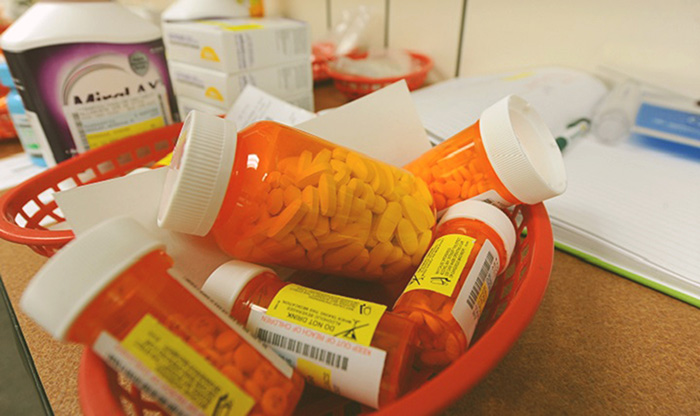
Of course we can’t forget about heart disease. It remains the #1 cause of death in America. Genetics, exercise, diabetes, blood pressure, smoking, diet, stress, age and cholesterol all play a role. Luckily except for genetics and age you can work on all those modifiable risk factors. Focusing on the basics of diet and exercise is available to everyone and anyone.
Likewise cancer remains a common killer. Cancer does not become less common as you get older. Treating cancer comes with a staggeringly high price tag. Preventing cancer does not. Again this is an area where very simple changes in your lifestyle can have a profound effect on your risk for cancer. Not smoking. Moderating alcohol. Increasing fruits and vegetables … the antioxidants. None of this is controversial. None of this requires a prescription from the doctor. Again you’re in the driver’s seat when it comes to your health heart wise and Cancer wise. The problem is most of you are unwilling or unable to turn the keys in the ignition and get started on your drive to healthy longevity land … and of course that’s the key. You don’t want to just grow old you want to grow old and remain healthy as possible. This does not come from a random act of kindness this comes from you putting in consistent sustained attention to your health.
Finally we come to dementia. Dementia, to me, seems much worse than cancer or heart disease because of how long it lasts and the effects it has not only on the patient but the caregiver. No one wants a heart attack but at least if you drop-dead your suffering is over quickly. Likewise no one wants a cancer but after whatever harrowing therapeutics are necessary you can hope to enjoy a quality of life again but with dementia it’s a never ending nightmare. The staggering financial costs related to dementia, which are certain to increase dramatically as the Silver Tsunami peaks, Pale in my mind in comparison to the psychological damage done by this process. As depressing as this subject is, and I find it profoundly depressing, there is action again you can take to attempt to prevent dementia. Keep your weight down because obesity is associated with dementia. Keep your sugars under control because diabetes is related to dementia. Get regular exercise because regular exercise is strongly inversely correlated with getting dementia. Don’t smoke and be moderate with alcohol. Control your blood pressure but don’t let it go so low that you get dizzy. Most important is exercise. Whether you can help yourself prevent dementia by engaging in new activities and mental challenges remains debatable but physical exercise has been studied in multiple trials and has a protective effect on the brain.
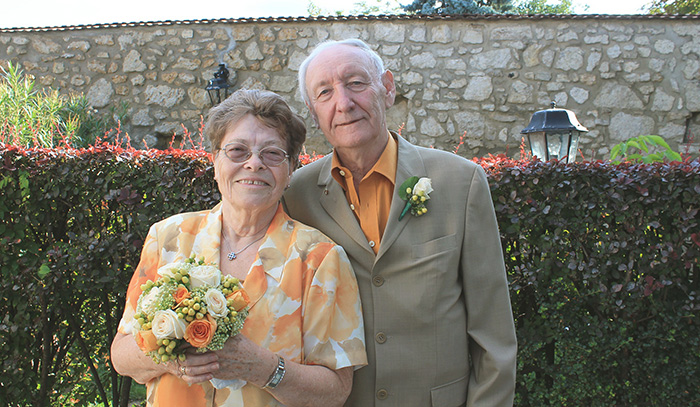
So there are multiple dangers ahead for seniors but luckily you can take action that improves your odds. Simple basic action like eating better and exercising etc. Even though I’m the doctor I find it heartening that you don’t have to come to me to make a big impact on your health. Take charge, take action and work on your health every day.
Fighting Fibromyalgia

Last month I wrote about the manifest benefits of exercise. Right after I wrote the article there was yet another paper in the medical journals that further supported the evidence that regular exercise decreases cancer risk as well. Imagine that… a treatment that doesn’t involve tremendous expense, a treatment that doesn’t require special medicines… a treatment that doesn’t require a doctor’s supervision. We have no pill that lowers dementia risk, lowers cardiovascular risk and lowers risk of cancer all at the same time. Plus, you will actually feel better!!!
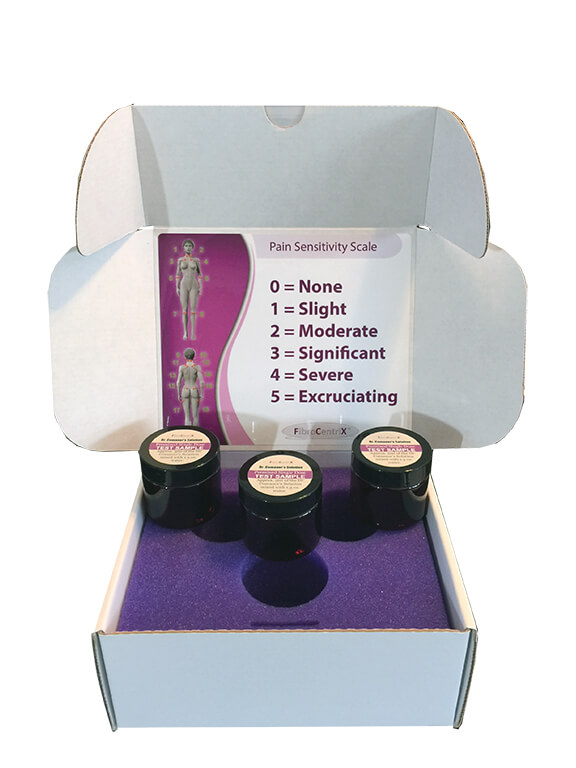
This month I want to focus again on something really new, at least for Syracuse. There is a new treatment for Fibromyalgia. Fibromyalgia as defined by the Mayo Clinic is “a disorder characterized by widespread musculoskeletal pain accompanied by fatigue, sleep, memory and mood issues.” We still don’t have a good handle on what causes fibromyalgia. Some doctors think it’s all just depression. Some doctors believe it is an infectious disease and we just haven’t found the causative organism yet. So far the treatments for fibromyalgia involve pain meds, antidepressants and seizure meds like lyrica and neurontin used for their pain relieving properties. Of course we advise all patients to try exercise but it’s tough to get people in pain at rest to really exert themselves. Genetics may play some role but it’s not a certainty. Women are affected more than men but we don’t really have a handle on why.
Other than prescription meds we have advocated meditation, tai chi, yoga, massage and acupuncture all of which have shown some improvement in symptoms over time. The prescription drugs don’t fix or cure anything they just help deal with the symptoms. Of course, the meds can cause their own symptoms and the patient is left trying to decide what’s worse, the disease or the treatment.

Now, however, there is something new. There is a company called Fibrocentix which offers a new patented treatment which is safe and effective for most patients and is also all natural. The company approached me about working with Fibro patients and since we don’t have any really good effective treatments I was all for trying it out. Any patient interested in the treatment gets seen by a trained specialist (not a nurse or doctor but someone with lots and lots of experience treating Fibro patients) for an educational and informational visit. At this visit the patient’s trigger points will be tested. Trigger point tenderness is one of the hallmarks of Fibro. Each patient after being evaluated is given a dose of the solution (it’s a liquid preparation) and can judge for themselves if it’s working. The visit and the trial of the medication is FREE. Thats right I used the F word. One of the reasons I was impressed with this company and its solution is that patients will know from the one free visit if the supplement works for them. YOU will be the judge of whether it works for you or not. If you get benefits from the supplement you take it for a few months and gradually wean off. If it doesn’t help… you do not proceed and keep looking for other solutions… it’s as straightforward as that! The solution is not guaranteed to work. I don’t think you can guarantee anything in the medical arena. I wouldn’t trust anyone that guarantees anything in medicine.

If you ask your doctor about this I expect that they will say… ”never heard of it.” If it’s not covered by insurance—and this treatment is not—doctors are not reading about it or being exposed to it. Insurance companies have to be dragged kicking and screaming to cover new meds, new FDA approved treatments, etc. -They sure are not going to warm up to the idea of covering an all natural patented supplement treatment. The insurance companies are not in charge of your health… you are. If you are in Fibro pain or know someone who is suffering from Fibromyalgia why wouldn’t you check this out. Since this doesn’t involve your insurance you don’t need a referral or anything like that. You can go to the web site and you will find a list of doctors who offer this treatment option and of course you can call us directly at 315-487-8109315-487-8109. You really have nothing to lose but possibly your pain !
Until next month… get well… stay well. JT BARRY MD
The Benefit of Exercise
I have written in the last year about interesting or exciting innovations like the Cognivue test which is the first and only FDA approved machine to test for dementia. I have written about the Pharmanex scanner to assess your nutritional / antioxidant status. I have written about the chronic care program sponsored by Medicare. These are all up-to-date, next generation/new wave issues but today I want to write about one of the bedrock issues of medicine which is the benefit of exercise. Everyone knows that exercise and eating right are good for you, in fact, it’s so well known that you spend very little time with your doctor discussing it. That’s a shame because the benefits are dramatic and sustainable and I think that the proof of this should be brought up on a regular basis.

We doctors have recommended a lot of things that in the end didn’t turn out to be true or meaningful. We told her to avoid eggs and that isn’t right. We told you to cut down the meat and the fats in your diet and that’s wrong as well. Years ago and still recently we said increase the carbohydrates in your diet and we know how wrong that is. We used to use leeches, we still do but in medically appropriate setting now. So If I’m going to recommend something I’d better back it up with up to date science.
Let’s start with exercise and dementia in the February 2017 Mayo Clinics proceedings they did a test of 6000 veterans to assess for exercise capacity and the association with dementia and cognitive impairment. The researchers found that “exercise capacity is strongly associated with cognitive function.“ The more you exercise the better your brain testing was. Since dementia is considered in some circles to be the #3 cause of death In America, this alone should be strong impetus to get on a good exercise program and to stay on it.
Another article from the Mayo Clinic from January 2017 assessed cardiovascular fitness and the likelihood of having an adverse cardiovascular event that is stroke or heart attack or sudden death. This test involved 20,000 US veterans more than half of whom are African-American. This study followed these men for 11 years. The research found that there was a very direct correlation between exercise capacity and adverse cardiovascular events. -The more fit you were the less likely a heart attack or stroke etc. The difference in mortality between the least fit and the most fit was quite dramatic.
Finally, the American Journal of medicine in 2016 published study that evaluated the impact of cardiorespiratory fitness levels on the risk of developing atherosclerosis -(hardening of the arteries). As you know the conventional wisdom is that the higher your cholesterol the more hardening of the arteries you’ll have. Hardening of the arteries leads to strokes and heart attack.

They basically followed people like myself with very high cholesterol levels who were also vigorous exercisers to see if the vigorous exercise could counteract the effects of the high cholesterol levels. They found, in fact, that if you had regular vigorous exercise it was amazingly protective of the heart despite the high cholesterol levels.
So, three articles published within the last year all confirm the various benefits of exercise. It protects the brain. It protects the heart. You don’t have to belong to a gym to get good exercise. Of course in this part of the country the other important thing to remember is that you have to weatherproof your exercise. So many people tell me that they don’t get out of the house much in the winter. Imagine leaving your car in the garage over the winter and trying to start it reliably come spring. There are many places like Destiny, Wal-Mart and Wegmans that have been enclosed areas you can walk in. Soon with Uber coming you won’t have any excuses left.
The great thing about exercise is it doesn’t really require prescription from the doctor. It doesn’t require special outfits. It doesn’t require special training places. It doesn’t require hours and hours of your time every day. You can do it alone or you can do it with other people. You can do it indoor or out. You can do it daytime or nighttime. There is no real reason that you can’t get started today to improve itself a little bit every day physically and for that matter mentally.
Next month we will again bring you something cutting edge, at least for Syracuse. Until then get well and stay well.
Is Alzheimer’s a Form of Diabetes? | March 2017
 Last month I got a little personal. This month I am taking you to the very cutting edge of scientific thought. There seems to be a real connection between diabetes and dementia. Someone coined the term that Diabetes Type 3. Until recently I had never heard this term. The contention is that Alzheimer’s Disease is really a brain form of diabetes. This is not really new info in the scientific community but it sure didn’t make it to the front line caregivers. The real culprit, as I understand it, is once again INSULIN. Simplistically Type 1 diabetics have no insulin and need to take shots of insulin to control their blood sugar. Insulin is a growth hormone that pushes the sugar in your bloodstream into the individual cells where they can be used. Type 2 diabetics don’t respond as well or strongly to the high sugar in your blood so it takes more insulin than normal to get the sugars into cells. This is called insulin resistance. Type 3 diabetes appears to be abnormal insulin effects in the brain resulting in histochemical and pathological changes identical to those found in Alzheimer’s brains. This is big big news which appears to be based on pretty good scientific underpinnings. The idea that Alzheimer’s is a form of diabetes has been around since 2005. Roughly one third of Americans have diabetes. Diabetes and dementia are both epidemic in this country and increasing over time. It has been known for some time that diabetic patients are 2-4 times as likely to become demented as those who are not diabetic. Besides telling the bodies cells to take in sugar, Insulin also tells fat cells to grow. If you are Insulin resistant, which the vast majority of Type 2 diabetics are , you have higher amounts of insulin in your bloodstream to keep your sugars under control. This same higher insulin level makes losing weight very difficult because insulin puts your body in growth mode not weight loss mode. You need insulin to live but you want to get away with as little as possible.
Last month I got a little personal. This month I am taking you to the very cutting edge of scientific thought. There seems to be a real connection between diabetes and dementia. Someone coined the term that Diabetes Type 3. Until recently I had never heard this term. The contention is that Alzheimer’s Disease is really a brain form of diabetes. This is not really new info in the scientific community but it sure didn’t make it to the front line caregivers. The real culprit, as I understand it, is once again INSULIN. Simplistically Type 1 diabetics have no insulin and need to take shots of insulin to control their blood sugar. Insulin is a growth hormone that pushes the sugar in your bloodstream into the individual cells where they can be used. Type 2 diabetics don’t respond as well or strongly to the high sugar in your blood so it takes more insulin than normal to get the sugars into cells. This is called insulin resistance. Type 3 diabetes appears to be abnormal insulin effects in the brain resulting in histochemical and pathological changes identical to those found in Alzheimer’s brains. This is big big news which appears to be based on pretty good scientific underpinnings. The idea that Alzheimer’s is a form of diabetes has been around since 2005. Roughly one third of Americans have diabetes. Diabetes and dementia are both epidemic in this country and increasing over time. It has been known for some time that diabetic patients are 2-4 times as likely to become demented as those who are not diabetic. Besides telling the bodies cells to take in sugar, Insulin also tells fat cells to grow. If you are Insulin resistant, which the vast majority of Type 2 diabetics are , you have higher amounts of insulin in your bloodstream to keep your sugars under control. This same higher insulin level makes losing weight very difficult because insulin puts your body in growth mode not weight loss mode. You need insulin to live but you want to get away with as little as possible.
Suzanne de la Monte a neuropathologist at Brown University did rat research that showed when she blocked insulin to the rats brains they acted demented and their brains showed “all the signs of Alzheimer’s”.
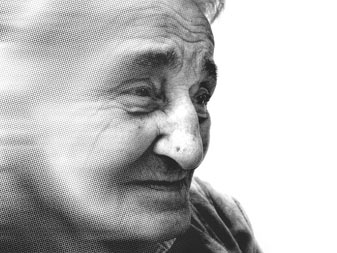 Shall we get more technical? In the Journal of Diabetes Science and Technology published November 2008 experts reviewed the evidence regarding this possible connection and found “extensive disturbances in brain insulin and insulin like growth factor (IGF) signaling mechanisms represent early and progressive abnormalities and could account for the majority of molecular, biochemical, and histopathological lesions found in Alzheimer’s Disease. “ Furthermore , when they experimentally induced brain diabetes these rats brains shared many features with Alzheimer’s and when they treated these rats with currently used insulin sensitizers the changes were reversible. Now we are not rats and many times what’s true in rats and mice does not translate to humans but it’s a pretty strong chain of evidence nonetheless.
Shall we get more technical? In the Journal of Diabetes Science and Technology published November 2008 experts reviewed the evidence regarding this possible connection and found “extensive disturbances in brain insulin and insulin like growth factor (IGF) signaling mechanisms represent early and progressive abnormalities and could account for the majority of molecular, biochemical, and histopathological lesions found in Alzheimer’s Disease. “ Furthermore , when they experimentally induced brain diabetes these rats brains shared many features with Alzheimer’s and when they treated these rats with currently used insulin sensitizers the changes were reversible. Now we are not rats and many times what’s true in rats and mice does not translate to humans but it’s a pretty strong chain of evidence nonetheless.
 Shall we talk numbers? According to an article in the NY Times…Diabetes and Dementia have nearly tripled in the US in the last 40 years. Both Diabetes and Dementia are separately listed among the top ten causes of death in America today. Currently 2 % of Americans have dementia…that’s over 5 million people and dementia costs our healthcare system 200 billion dollars. Add the cost of Dementia care and the cost of Diabetic care and you are talking some real money and a real impact on the health care system.
Shall we talk numbers? According to an article in the NY Times…Diabetes and Dementia have nearly tripled in the US in the last 40 years. Both Diabetes and Dementia are separately listed among the top ten causes of death in America today. Currently 2 % of Americans have dementia…that’s over 5 million people and dementia costs our healthcare system 200 billion dollars. Add the cost of Dementia care and the cost of Diabetic care and you are talking some real money and a real impact on the health care system.
For further reading check out the well known Dr. David Perlmutter’s book Grain Brain.
The most important finding in all this is that Alzheimer’s is no longer just a “condition that befalls us by chance.” You might be able to dramatically decrease your risk of dementia with your diet and exercise program. No fancy medications, no special treatments. The same diet that can improve your brain is the very same diet that improves your heart, your waistline, and your liver….so now what’s stopping you ! Next month we finally take on the supplement industry with hard science and new technology. Stay tuned…until next month…get well and stay well. Jtb
JANUARY 2017 TABLEHOPPING ARTICLE – RESOLVE TO STOP RESOLVING
 Rather than belabor the whole New Year’s Resolution thing I wanted to start out the new year with a top 5 stories list. You know I don’t think people should wait for a certain date before they begin the process of changing themselves. The day to start changing is today. I have a friend who says … ”I will start my diet on XX date.” He then uses this as an excuse to overeat until that date … ”Well, soon I will be on a drastic diet … overeating now can’t make a difference.” Then, of course, the date comes around and he has another excuse as to why he is putting it off. My friend is very well intentioned and I think he really means it but this pattern has occurred so often you would think an intelligent person would recognize this but that just goes to show that it is hard to really know yourself. Change your life and habits or don’t but the day to do that is today … not tomorrow or Jan 1st.
Rather than belabor the whole New Year’s Resolution thing I wanted to start out the new year with a top 5 stories list. You know I don’t think people should wait for a certain date before they begin the process of changing themselves. The day to start changing is today. I have a friend who says … ”I will start my diet on XX date.” He then uses this as an excuse to overeat until that date … ”Well, soon I will be on a drastic diet … overeating now can’t make a difference.” Then, of course, the date comes around and he has another excuse as to why he is putting it off. My friend is very well intentioned and I think he really means it but this pattern has occurred so often you would think an intelligent person would recognize this but that just goes to show that it is hard to really know yourself. Change your life and habits or don’t but the day to do that is today … not tomorrow or Jan 1st.
My top 5 medical stories are probably not the 5 your own doctor would list. I would urge you to bring up any of these articles to ask your doctor if they are in fact true but I think you’re just going to upset your doctor because it’s extra work for them or challenges their long held beliefs.
Story #1 is the United States Preventive Task Force statement regarding treating cholesterol and primary prevention. They state “There is insufficient evidence to recommend for or against statin use for people older than age 75.” I know many many people older than 75 that are taking a statin drug just because their numbers are high. I have seen multiple patients in their 90s never having had a heart attack or stroke that are given a statin drug which is designed to prevent premature death but I don’t think there is anything premature about death In your 90s. This recommendation from this independent panel is likely to go ignored because it doesn’t agree with current practices for most doctors. One of the scariest things to me is that when we have new evidence —unless it agrees with our current thinking— we have a tendency to ignore it.
 Story #2 is the recent article in the New England Journal of Medicine that suggested that most supplemental oxygen is a waste. Essentially if you can walk around with your oxygen bottle you probably don’t need it! Medicare, who makes most of the rules, has long stipulated that oxygen therapy is appropriate for people if their oxygen saturation when tested in the office is less than 89%. If oxygen is low you should prescribe oxygen and the patient should benefit and live longer and require less hospitalizations and feel better. It certainly made sense but unfortunately this most recent study shows that for the vast majority of people getting submental oxygen there is no difference of hospitalizations, life expectancy or patient’s satisfaction. Again, what we have been doing for many people for many years seems to be not appropriate or not cost-effective or simply not impactful to the patient’s health. Despite this report which was well done and published in a major journal I believe most doctors again will not change their practice. Don’t get me wrong … people with very severe lung disease who require oxygen should not have it yanked away from them but many people who had episodes of low oxygen saturation when they’re walking or moving around do not benefit from supplemental oxygen based on this most recent and thorough report.
Story #2 is the recent article in the New England Journal of Medicine that suggested that most supplemental oxygen is a waste. Essentially if you can walk around with your oxygen bottle you probably don’t need it! Medicare, who makes most of the rules, has long stipulated that oxygen therapy is appropriate for people if their oxygen saturation when tested in the office is less than 89%. If oxygen is low you should prescribe oxygen and the patient should benefit and live longer and require less hospitalizations and feel better. It certainly made sense but unfortunately this most recent study shows that for the vast majority of people getting submental oxygen there is no difference of hospitalizations, life expectancy or patient’s satisfaction. Again, what we have been doing for many people for many years seems to be not appropriate or not cost-effective or simply not impactful to the patient’s health. Despite this report which was well done and published in a major journal I believe most doctors again will not change their practice. Don’t get me wrong … people with very severe lung disease who require oxygen should not have it yanked away from them but many people who had episodes of low oxygen saturation when they’re walking or moving around do not benefit from supplemental oxygen based on this most recent and thorough report.
Story #3 is more speculative and claims that there is a link between Alzheimer’s and insulin resistance. There has long been evidence that diabetes increases your risk of dementia and it may actually double your risk although the numbers are debatable. Newer understanding suggests It’s not the sugar itself but the insulin resistance that may cause these proteins to build up in the brain. For every patient out there with known diabetes there is at least one other with insulin resistance so it’s understandable how dementia could be a major problem in the years to come. Of course I liked this finding because it confirms the validity of my suggestion of skipping breakfast to help you lose weight and lower your insulin level. Google intermittent fasting.

Story #4 is about hot peppers. Hot peppers can apparently kill you. I am a big fan of a moderate use of spices, onion, ginger, and garlic. I think they’re all healthy for you and when I was younger I used to hit the hot peppers a bit more than I do now and even now I can get a good sweat going from eating a hot pepper. There is however a danger from hot peppers and that is if you have a pepper that so irritating that it causes you to vomit violently. This can cause a spontaneous esophageal rupture which is also called Boerhaave’s syndrome. There was an article recently about a patient who was in hot pepper eating competition and vomited so vigorously that he ruptured his esophagus and this is usually 100% fatal unless treated surgically. I’m told he recovered fully but he did spend over 3 weeks in the hospital and I’d hate to see his hospital bill! Although this is a cautionary tale I think most of us are safe and I continue to recommend peppers, onion, horseradish, etc. because I think these vegetables and preparations are very healthy for you.
Story #5 is that we finally have proof of the benefits of breathing. Not your day to day breathing although it’s obviously beneficial to keep breathing. I’m talking about conscious breathing likely doing yoga … being aware of your breath and focusing on your breath. There was an article in the December 6th Journal of Neuroscience that mentioned that scientists at Northwestern Medical Center have discovered the rhythm of breathing creates a “activity in the brain that enhances emotional judgments and memory recall. Northwestern Medicine scientists have discovered for the first time that the rhythm of breathing creates electrical activity in the human brain that enhances emotional judgments and memory recall. “When you breathe in, we discovered you are stimulating neurons in the olfactory cortex, amygdala and hippocampus, all across the limbic system.” You know I love yoga and recommend yoga to almost everyone … I really don’t need any more studies to make me a believer. Anyone who has practiced deep breathing exercises knows how powerful these techniques can be but it’s nice to see scientific evidence of their benefits.
Listen, it’s the beginning of the year. You don’t have to make a resolution but you can make a plan so that this time next year you are healthier and in better shape than you are now. Maybe it’s the time to finally quit drinking soda. Maybe skipping breakfast will find you 5-10 pounds lighter next year. What separates the dreamers from the successful people is making a plan and following up on the plan. Start today! Until next month … get well … stay well.
Holiday Health | December 2016
As I write this in mid November sitting by the fireplace by the pool it’s such a nice almost summer like day that it’s hard to imagine that Thanksgiving is around the corner and then it’s time for Xmas plans. There is as yet no holding back the hands of time so might as well get ready for it. Not too ready … I still shudder at all the Xmas decorations even before Thanksgiving but that’s just the traditionalist in me.
There’s a lot of health issues around the holidays and we might as well deal with the most common and get our Xmas cards on the table … so to speak.
 This can be a rough time of year both physically and mentally. Physically because this is when you go a little cra-cra with the diet … The typical adult puts on 1-3 pounds of weight each year and this is the time of year when that happens. You did fine the rest of the year but now look at you!?! Are you really cutting into that cakey thing made of nutella and dried prunes? You can’t possible reel it in after that first piece of pumpkin pie? You can at least go for a walk before or after dinner … it won’t give you any real weight loss but at least when you are walking you are probably not eating. I know there are those proud few of you that can eat and exercise at the same time but you are not reading any articles about health or medicine so I can safely exclude you from the conversation. I love how people act like the holidays sneak up on them every year … I had no idea we would be sitting down to a full turkey dinner with all the trimmings? Who knew there would be treats on the table for the holidays? Who could have guessed?
This can be a rough time of year both physically and mentally. Physically because this is when you go a little cra-cra with the diet … The typical adult puts on 1-3 pounds of weight each year and this is the time of year when that happens. You did fine the rest of the year but now look at you!?! Are you really cutting into that cakey thing made of nutella and dried prunes? You can’t possible reel it in after that first piece of pumpkin pie? You can at least go for a walk before or after dinner … it won’t give you any real weight loss but at least when you are walking you are probably not eating. I know there are those proud few of you that can eat and exercise at the same time but you are not reading any articles about health or medicine so I can safely exclude you from the conversation. I love how people act like the holidays sneak up on them every year … I had no idea we would be sitting down to a full turkey dinner with all the trimmings? Who knew there would be treats on the table for the holidays? Who could have guessed?
You could actually plan for these occasions … intentionally bringing a healthy choice to the communal dinner, you could get some extra walks in and or trim down your usual portions for the week or two before the get together to keep the weight gain down. I am not saying you should not enjoy the holiday … life is way too short and I have no objection to the eat dessert first crowd. I am saying throw some cranberry on that plate … even the kind that still has the ring imprints from the can it came from. (That’s my personal favorite). Take a couple spoonfuls of that green bean casserole … it’s good and it’s good for you. Well, as I write this I realize when you read this you will already have debauched yourself at Thanksgiving but you can still get yourself together for the rest of the year end festivities.
 This is also a tough time of year physically because people “turtle up” for the winter. They have no problem being outdoors and active during the three months of the summer but wintertime comes and they go into exercise hibernation waiting out the long cold months for the sun and warm weather to return. That’s too much down time for a person of your age. You have to keep moving it in the winter. You don’t have to go to the gym but you should move around more than you are. Don’t kid yourself … if going down the stairs with the laundry is really exercise for you … you are not the fittest amongst us. Of course I’m a big fan of walking but I understand the dangers of the slippery sidewalk, etc but you can always walk at the Mall. It’s absolutely nothing like being outside in the elements but it is safer!
This is also a tough time of year physically because people “turtle up” for the winter. They have no problem being outdoors and active during the three months of the summer but wintertime comes and they go into exercise hibernation waiting out the long cold months for the sun and warm weather to return. That’s too much down time for a person of your age. You have to keep moving it in the winter. You don’t have to go to the gym but you should move around more than you are. Don’t kid yourself … if going down the stairs with the laundry is really exercise for you … you are not the fittest amongst us. Of course I’m a big fan of walking but I understand the dangers of the slippery sidewalk, etc but you can always walk at the Mall. It’s absolutely nothing like being outside in the elements but it is safer!
Turning to the psychological side of the holidays this can be a stressful time. A lot of people let the whole family gathering and or gift giving get them anxious and depressed. Also people who have lost a loved one during the year are experiencing their first holiday without them and I just don’t know how to lessen that pain except to urge them to find comfort in the company of others. Of course I would be remiss if I didn’t recommend the great local charity Hope for Bereaved because this is completely their bailiwick.
Now on the issue of gift giving … Last year I gave someone who I thought I knew a gift of Bacon of the Month … and I mean this was high end, thick cut, special rubs and salts specialty bacon not a package from the Gas and Go … in return I got a disco ball from Spencer’s gifts with the promise that if I gave more bacon further disturbing gifts would follow. Needless to say all subsequent bacon was diverted … to my house … I still don’t know what to make of this incident because I thought a love of bacon was shared by all guys my age. My point being you can torture yourself trying to think of gifts and be oh so wrong so why not try something new? Is it too trite to suggest you give the gift of time together? Instead of that sweater you know they will exchange … why not movie tickets to a show you can all go to together. Why not a dinner gift certificate that includes you? Tickets to a baseball game are dirt cheap so you can’t throw down the $$$ excuse. Speaking of getting together as a gift, which it surely is, this is the perfect time of year for that because there are Christmas shows aplenty. To bring just two to your attention why not check out The Desantis Xmas show at the Palace Theatre Sunday Dec 11th … This is a great venue for great Xmas music provided by local talents both new and legendary fronted by Maria Desantis. For something a little different check out the Solstice at the Cathedral Celebration on December 8th, 9th and twice on the 10th. This series of concerts features other local powerhouse performers like Joe Whiting, Donna Coulton, Loren Barringer, Matt Vacanti to name just a few. There is something for everyone at both of these events. There are memories to be made. Isn’t that the best gift of all?
Until next month … get well and stay well.

Asprin …To Take or Not To Take | November 2016
 Today I take on aspirin. Why not? I have already talked about the overuse of statin drugs, the crazy dietary recommendations including salt restriction, the beneficial role of fat in your diet, and supplements so why not take on aspirin. Seems like everyone in America is taking an aspirin or knows someone taking aspirin. It’s almost expected on people’s records that if they are adults you just mark multivitamin and aspirin as presupposed medicines. I think most doctors just assume adults are taking a multivitamin and an aspirin … on general principle. But what’s the science behind it? I was going to write that there is no evidence that aspirin is beneficial for most people. That would be wrong. There is evidence that aspirin is beneficial … but there is also evidence that most people don’t need it and actual can be hardened by it. You shouldn’t just drink the aspirin-aide … you should decide for yourself and should base it on the evidence.
Today I take on aspirin. Why not? I have already talked about the overuse of statin drugs, the crazy dietary recommendations including salt restriction, the beneficial role of fat in your diet, and supplements so why not take on aspirin. Seems like everyone in America is taking an aspirin or knows someone taking aspirin. It’s almost expected on people’s records that if they are adults you just mark multivitamin and aspirin as presupposed medicines. I think most doctors just assume adults are taking a multivitamin and an aspirin … on general principle. But what’s the science behind it? I was going to write that there is no evidence that aspirin is beneficial for most people. That would be wrong. There is evidence that aspirin is beneficial … but there is also evidence that most people don’t need it and actual can be hardened by it. You shouldn’t just drink the aspirin-aide … you should decide for yourself and should base it on the evidence.
If you ask your doctor if you should take an aspirin he or she will probably say … ”sure why not?” This is the conventional wisdom. The current thought is to take a low dose aspirin product because you get all the benefit with the least risk. Sounds great. Sounds prudent. But what does the evidence say? What are the guidelines? That’s what I will focus on here. If you mention to your provider that Dr. Barry questioned the universal use of recommending aspirin they will respond … ”Dr. Barry is off his meds !” So instead clip out this article and bring it with you and ask them to refute the expert testimony herein!
Let’s start with the recommendations from one of the most prestigious organizations: the United States Preventive Services Task Force. “The USPSTF recommends initiating low-dose aspirin use for the primary prevention of cardiovascular disease (CVD) and colorectal cancer (CRC) in adults aged 50 to 59 years who have a 10% or greater 10-year CVD risk, are not at increased risk for bleeding, have a life expectancy of at least 10 years, and are willing to take low-dose aspirin daily for at least 10 years.”
 Furthermore “The current evidence is insufficient to assess the balance of benefits and harms of initiating aspirin use for the primary prevention of CVD and CRC in adults younger than 50 year or older than 70 years.“ So yes I am saying that one of most prominent organizations say that aspirin only has really good evidence in people between 50 and 60! There are bleeding risks associated with aspirin. I am not worried about the increased risk of GI bleeding with the drug … I figure that is offset by the possible benefit of decreasing colon cancer. The bleeding risk I worry about is in the brain. If you take aspirin and have a fall with head injury aspirin can increase the amount of bleeding around the brain. If you have a bleeding type of stroke, which thankfully accounts for only a small percentage of strokes, having been on aspirin increases the bleeding in the stroke area. This is not good. I can transfuse blood but I can’t transfuse brain. At least not yet.
Furthermore “The current evidence is insufficient to assess the balance of benefits and harms of initiating aspirin use for the primary prevention of CVD and CRC in adults younger than 50 year or older than 70 years.“ So yes I am saying that one of most prominent organizations say that aspirin only has really good evidence in people between 50 and 60! There are bleeding risks associated with aspirin. I am not worried about the increased risk of GI bleeding with the drug … I figure that is offset by the possible benefit of decreasing colon cancer. The bleeding risk I worry about is in the brain. If you take aspirin and have a fall with head injury aspirin can increase the amount of bleeding around the brain. If you have a bleeding type of stroke, which thankfully accounts for only a small percentage of strokes, having been on aspirin increases the bleeding in the stroke area. This is not good. I can transfuse blood but I can’t transfuse brain. At least not yet.
OK so this is just one panel … what do the other experts say … surely the American Heart Association and the American Diabetes Association weigh in on the use of aspirin. In the September 2015 edition of the American College of Cardiology commenting on the American Heart Association and the American Diabetes Association joint statement which state that “low-dose aspirin (75-162 mg/d) is reasonable for those at 10-year CVD risk of at least 10% without increased risk of bleeding (ACC/AHA Class IIa, LOE B, ADA LOE C) and in those with diabetes at intermediate risk defined as 5-10% 10-year CVD risk (ACC/AHA Class IIb, LOE C, ADA LOE Expert Opinion).”
A careful reading of the above will show that only in the sub population of people that have a 10 year risk of heart event of 10% does aspirin show any proven benefit. Translation = most people don’t need aspirin! Even the American Heart Association website specifically states “You should not start aspirin therapy on your own.” How often have you and your doctor calculated your particular 10 year heart and stroke risk score? After all, heart disease is the number one killer of adults in America … isn’t it worth 5 minutes of your time and your doctors time to calculate your risk or at least have a conversation about your risk factors? The calculators are available on the web and if you have access to your labs you can do your own calculation. These calculators have their detractors but they at least set the stage for the important conversation about your heart health and therefore your overall health. Don’t be a passive observer of your health care experience … bring questions … expect at least conversation and education if not definitive answers about your health. Your doctor can only guide you … only you can improve your health and that’s a great thing. You don’t need a good insurance company. Its nice to have but it doesn’t ensure your health. You don’t need a gym membership. Its nice to have but it doesnt mean you can’t take care of your exercise business anywhere. You are the one who has to put down the cigarette and say “I’m done.” You are the one that has to look at your dinner plate and say “My new lifestyle starts today.” Does that empower you or scare you. Just because its up to you doesnt mean that you cant get help in lots of different ways to improve your health. Build your team. Work your team. Hopefully your medical provider is part of that team.
Until next month … get well and stay well.

And They’re Off! | October 10, 2016
 Maybe it’s just me but I think you should practice what you preach. Can you really take advice on weight loss from a doctor who could lose 50? Has the professional that is recommending a colonoscopy had one themselves? pv-1Hey, I know I’m no stud muffin but I make an effort to keep my weight in check and work out regularly and aggressively. The aches and pains you take Tylenol or Aleve for are my regular companions and a reminder of the workout. I feel guilty if I don’t have an ache or pain because it means I haven’t pushed myself in a while. Although I have my regular exercise routines I think it’s also important to mix it up a little and one nice way is to do some event. There are 101 charity events with some run / walk seemingly and probably literally every weekend. You get out of the house, you test yourself a little whether you run or walk, you have new experiences, meet people you know and make new acquaintances. What’s not to like? Plus it’s usually for a good cause and not usually expensive. Winner Winner chicken dinner.
Maybe it’s just me but I think you should practice what you preach. Can you really take advice on weight loss from a doctor who could lose 50? Has the professional that is recommending a colonoscopy had one themselves? pv-1Hey, I know I’m no stud muffin but I make an effort to keep my weight in check and work out regularly and aggressively. The aches and pains you take Tylenol or Aleve for are my regular companions and a reminder of the workout. I feel guilty if I don’t have an ache or pain because it means I haven’t pushed myself in a while. Although I have my regular exercise routines I think it’s also important to mix it up a little and one nice way is to do some event. There are 101 charity events with some run / walk seemingly and probably literally every weekend. You get out of the house, you test yourself a little whether you run or walk, you have new experiences, meet people you know and make new acquaintances. What’s not to like? Plus it’s usually for a good cause and not usually expensive. Winner Winner chicken dinner.
Earlier this year I did a charity run for Hope for Bereaved … you know I love that organization. I hadn’t run again until an event came up last weekend to which I made a donation and promised to do the run … I don’t run much anymore but these folks do my compounding when I want to use topical meds and I think they are nice people and it was in support of 9/11 with Todd’s Fund. Etc …
So there I was cruising down a country road en route to a 5k run at Vernak Farms Store somewhere nears Skaneateles … I don’t know how long the run is or what the course is like but it’s a beautiful day and by using the Chi-Running technique I can usually power through most races. Not winning any awards but plugging away … never stopping … getting ‘er done. No matter how long or short the race I will look near death at the end. I see a sign on the side of the road —presumably a country church— as the sign says … “Whenever 2 or 3 may gather in my name there I am.” Mathew 18:20.
 Now what goes through my mind first is that this is a nice affirmation that even a little group has the attention of God. Then, on pondering a little further it occurs to me that this implies that you need at least 2 people to get things going. So does that mean if I were to pray alone at night, which many people do, that I don’t have God’s ear? It doesn’t say “Whenever one person” no … it says “Whenever 2 or 3.” Seems like a minimum to me but I know that can’t be right. Now I have this conundrum in my head while I am getting my race game face on. You’ve seen my regular face … race face is no prettier. I am trying to think of some Biblical passages that might provide more insight at the same time I am double knotting my sneakers before the race. I got my mind right before the race by listening to some Bob Marley … the question of the utility of singular prayer put away for now.
Now what goes through my mind first is that this is a nice affirmation that even a little group has the attention of God. Then, on pondering a little further it occurs to me that this implies that you need at least 2 people to get things going. So does that mean if I were to pray alone at night, which many people do, that I don’t have God’s ear? It doesn’t say “Whenever one person” no … it says “Whenever 2 or 3.” Seems like a minimum to me but I know that can’t be right. Now I have this conundrum in my head while I am getting my race game face on. You’ve seen my regular face … race face is no prettier. I am trying to think of some Biblical passages that might provide more insight at the same time I am double knotting my sneakers before the race. I got my mind right before the race by listening to some Bob Marley … the question of the utility of singular prayer put away for now.
The whole event was nice … They have a yearly wellness fair and expo with an impressive layout of vendors and informational booths. The race was tougher than your usual 5K. It starts out uphill … short flat section then what seemed like a mile and a half slow steady up hill. It was an out and back course so there is a turnaround but I didn’t know that because the pain of going uphill for so long would have been mitigated by my knowing I have a long downhill on the last part of the race … At the top of the long slow … for me … uphill part there was a steep downhill with the turn around at the bottom … So you know you are going to have to go back up the steep uphill once you turn around but beyond that is the blessed long gentle downhill part … I can shamble like a corpse from the Walking Dead indefinitely on the downhill and I am not alone. Everyone who beat me looked much younger than me so I wasn’t disturbed by my performance.
I hope you see more and more health professionals at these events. It’s good to show people we are doing the things we recommend. It might be one more way to make a difference.
Until next month … get well … stay well.
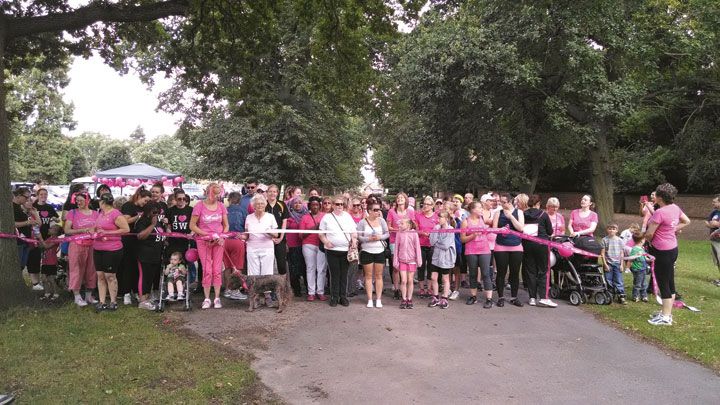
Salt Of The Earth | September 9, 2016
Having written about cholesterol and saturated fats I now turn the Eye of Sauron towards another perennial topic which is sodium restriction. Excessive salt intake can raise your blood pressure and increase your risk for heart attack and stroke. So if salt (sodium chloride) is bad for you it should be restricted.
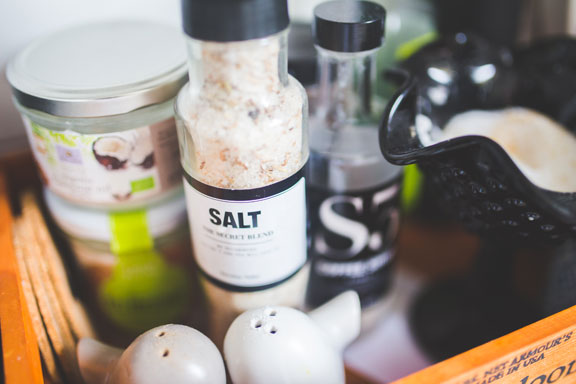
Lower salt intake should result in less heart disease and stroke. Unfortunately this just isn’t the case. As you will read below, cutting down on your salt intake too much can be dangerous. You shouldn’t sprinkle salt on your food even before you taste it. Even today the American Heart Association states that dietary sodium should be restricted to less than 1,500 mg a day. This guideline is exceeded by 95% of Americans! Even if you accept this premise the experts say this will only reduce your blood pressure by a few points. Going from 180/100 to 176/96 just isn’t enough to change any clinical outcomes. Don’t get me wrong: Hypertension is a killer. -It’s the main cause of stroke and a leading cause of heart disease and should be treated. Exactly how low to go is still under debate (See the recent Sprint trial). Lowering blood pressure is important. Dramatically restricting salt is just not the way to achieve meaningful results and restricting salt too much can actually have adverse effects as well. I am going to quote from several articles instead of paraphrasing as I usually do because I can’t improve on what’s on the page. Melinda Wenner Moyer wrote in the New York Times reporting on a 2006 American Journal of Medicine study: they “compared the reported daily sodium intakes of 78 million Americans to their risk of dying from heart disease over the course of 14 years. It found that the MORE sodium people ate, the less likely they were to die from heart disease.“
Don’t like that study? Too old to be relevant? How about a July 2011 meta-analysis of seven studies involving over six thousand people — published in the American Journal of Hypertension — this study “found no strong evidence that cutting salt intake reduces the risk for heart attacks, strokes or death in people with normal or high blood pressure. In Many European researchers publishing in the Journal of the American Medical Association reported that the less sodium that study subjects excreted in their urine — an excellent measure of prior consumption — the greater their risk was of dying from heart disease. These findings call into question the common wisdom that excess salt is bad for you, but the evidence linking salt to heart disease has always been tenuous.” Still not convinced? Want something more recent? The American Journal of Medicine November 2013 had this to say: “The American Heart Association recently strongly recommended a dietary sodium intake of <1500 mg/d for all Americans to achieve “Ideal Cardiovascular Health” by 2020. However, low sodium diets have not been shown to reduce cardiovascular events in normotensive individuals or in individuals with pre-hypertension or hypertension. Moreover, there is evidence that a low sodium diet may lead to a worse cardiovascular prognosis in patients with cardiometabolic risk and established cardiovascular disease. Low sodium diets may adversely affect insulin resistance, serum lipids, and neurohormonal pathways, leading to increases in the incidence of new cardiometabolic disease, the severity of existing cardiometabolic disease, and greater cardiovascular and all-cause mortality. Although a high sodium intake also may be deleterious, there is good reason to believe that sodium intake is regulated within such a tight physiologic range that there is little risk to leaving sodium intake to inherent biology as opposed to likely futile attempts at conscious control.”
 You have to wonder how the Heart Association can make such a drastic recommendation when it comes to sodium restriction in the face of these findings? I don’t get it but I don’t get the dietary fat recommendations either.
You have to wonder how the Heart Association can make such a drastic recommendation when it comes to sodium restriction in the face of these findings? I don’t get it but I don’t get the dietary fat recommendations either.
Until there is real science behind the guidelines I think you are best off following a moderate path. Don’t be afraid of salt but don’t go crazy either. Most importantly check your blood pressure periodically and if it is elevated get it down with diet, exercise and medications as needed. Don’t make the pills your first choice! Talk with your doctor about potassium chloride instead of sodium chloride because there IS evidence that a higher potassium diet may actually lower blood pressure! And you don’t have to take potassium pills; you can find plenty of potassium in mushrooms, bananas, green veggies etc. That’s right, healthy eating can lower your blood pressure! Why not give it a try … Utica Greens are still in season.
P.S. Remember … what happens at the Fair stays at the Fair!
Medical Mythbusters | August 8, 2016
Sometimes that’s how I feel. I am by no means a lone voice crying out in the woods in talking about the exaggerated benefits of statin therapy, the limited data to support dietary sodium restriction, the modest and controversial benefits of aspirin therapy for primary prevention but it sure seems like it.
 I write today about birth and death. The birth of dietary guidelines and the death of common sense. I know you think the government is careful and thorough in all things…I mean look at how well Obamacare is doing, our war against terrorism, our carefully balanced budgets etc. Well, the dietary guidelines were crafted years ago…perhaps the government was somehow better, more honest then. Sorry to disappoint but read on.
I write today about birth and death. The birth of dietary guidelines and the death of common sense. I know you think the government is careful and thorough in all things…I mean look at how well Obamacare is doing, our war against terrorism, our carefully balanced budgets etc. Well, the dietary guidelines were crafted years ago…perhaps the government was somehow better, more honest then. Sorry to disappoint but read on.
I will write more about the cholesterol con in further posts but today I focus on dietary guidelines. In 1977 the United States Select Committee on Nutrition and Human Needs convened a consensus panel… (one of the participants quipped that if there was real consensus they wouldn’t need a panel) That panel concluded… despite the lack of any real evidence that dietary fat caused heart disease and obesity. Interestingly enough for you history buffs the chair of the committee was Senator George McGovern. The panel’s guidelines became the Dietary Goals for the United States and the instructions were to eat more carbohydrates and less fat. Specifically the guidelines said you should consume 55-60% of your calories from carbohydrates! As the great Dr. Jason Fung points out in his book “the Obesity Code” the American Heart Association’s guidelines in 1995 “Americans should eat six or more servings of breads, cereals, pasta and starchy vegetables and to choose fruit juices and carbonated beverages as your liquids of choice.” Six servings of bread? Carbonated beverages as the liquids of choice? This seems laughable ! How can this be a real recommendation? The results of these recommendations? Heart disease did not decrease significantly as was predicted but obesity has increased to “epidemic” proportions. Current recommendations are still based on misguided interpretations of research done years ago. There is almost no scientific basis for the current guidelines. For a an absolutely superb video on this subject… check out Dr. Peter Attia on youtube or his website “the eatingacademy.com”. His common sense, easy to follow review of massive amounts of historic and current data…the same data some of the guidelines use to make their recommendations and so much of the conflicting data that has been ignored will completely convince you of the errors of our current thinking.
 Just from a common sense standpoint… who could believe that such completely natural things like eggs and butter could be deadly and you should instead use this alien yellow substance in a slightly different yellow colored plastic container. We were told the fat in milk is bad for us… not a shred of evidence to support that and instead we became a nation of soda drinkers or just as bad… juice drinkers… if, as is typical, the juice contains high fructose corn syrup. We all learned to cut off the fat from our steak while at the same time consuming more nitrate containing bologna and hot dogs. We were told that breakfast was the most important meal of the day which is worse than nonsense since the typical american breakfast consists of some cereal product. News alert… there is no healthy cereal period. It’s all processed carbohydrates. It’s the worse thing you could put in your mouth in the morning. The worse thing. I recoiled in horror the other day when I learned that a relative of mine was so proud of the fact that they had the same thing for breakfast every day… Cheerios. First, wouldn’t a little variety be nice? Who really wants to eat the very same thing every morning ? Well I could understand if the results were impressive but let’s just say the Cheerios have left an impression on my relative. A BIG impression.
Just from a common sense standpoint… who could believe that such completely natural things like eggs and butter could be deadly and you should instead use this alien yellow substance in a slightly different yellow colored plastic container. We were told the fat in milk is bad for us… not a shred of evidence to support that and instead we became a nation of soda drinkers or just as bad… juice drinkers… if, as is typical, the juice contains high fructose corn syrup. We all learned to cut off the fat from our steak while at the same time consuming more nitrate containing bologna and hot dogs. We were told that breakfast was the most important meal of the day which is worse than nonsense since the typical american breakfast consists of some cereal product. News alert… there is no healthy cereal period. It’s all processed carbohydrates. It’s the worse thing you could put in your mouth in the morning. The worse thing. I recoiled in horror the other day when I learned that a relative of mine was so proud of the fact that they had the same thing for breakfast every day… Cheerios. First, wouldn’t a little variety be nice? Who really wants to eat the very same thing every morning ? Well I could understand if the results were impressive but let’s just say the Cheerios have left an impression on my relative. A BIG impression.
 So yes I am saying that eggs and butter and steak and milk are very healthy foods. The idea that you should substitute one fat for another is flawed. The one exception is trans fats… completely manufactured fats for the most part. You avoid trans fat and processed sugars when you avoid processed foods. Anything out of a box is processed. Many current dietary guidelines say to limit saturated fats and substitute fats like linoleic acid will cut down the risk of stroke and heart attack.
So yes I am saying that eggs and butter and steak and milk are very healthy foods. The idea that you should substitute one fat for another is flawed. The one exception is trans fats… completely manufactured fats for the most part. You avoid trans fat and processed sugars when you avoid processed foods. Anything out of a box is processed. Many current dietary guidelines say to limit saturated fats and substitute fats like linoleic acid will cut down the risk of stroke and heart attack.
Now it gets interesting because recently data from the Minnesota Coronary Experiment which looked at just this question has been reexamined. As published in Cardiology Today July 2016 (hows that for current data!). The data are very damning for the guidelines. This was a double blind study involving almost 10,000 people They wanted to see if substituting linoleic acid for typical fats would cut down on cholesterol levels and heart attacks and death. Those are some easy to understand endpoints. Dr Zaomora and colleagues found that the change in diet did indeed lower cholesterol but it had no mortality benefit whatsoever. The change in diet did not decrease deaths. In fact the researchers found that as the cholesterol level lowered the risk of death actually increased! At autopsy the group on the linoleic acid died were found to have twice as many heart attacks as the regular diet group… twice the number of heart attacks!
Now I don’t trust metaanalysis data (where multiple trials are lumped together to try to find significant findings) as much as I trust the double blind trials like the one above but the same investigators included the above trial and 5 other trials and found there was no association between serum cholesterol and BMI. They found no association between cholesterol lowering interventions and heart disease mortality or all cause mortality. This is pretty damning stuff! This analysis is saying that cholesterol lowering drugs have not shown any benefit in terms of how long you will live!! This is not the only trial that has shown this. A recent paper looked at trials in high risk patients… the elderly, people with diabetes, people with kidney disease, and people who have had bypass surgery and the vast majority of these trials showed no benefit in terms of all cause mortality. Even in high risk patients… taking a statin will lower your cholesterol nicely but just doesn’t have an impact in terms of how long you will live. We will talk about relative risk and absolute risk and the number needed to treat in subsequent articles but even the most “convincing” data from a recent trial showed that a thousand people have to take the pill for years and only one person might actually live longer…that’s not very convincing or encouraging to me.
 Unfortunately when you show data that disputes the current “Cholesterol is bad…if your cholesterol is high you must take a pill” dogma usually the establishment just rejects it. For example when Dr Willett …chair of nutrition at Harvard… was confronted with the evidence that changing the fats in your diet was either unhelpful or actually harmful..evidence from a large trial done using what we think are the best research methods available… his response was “this report adds no useful new information and is irrelevant to current dietary recommendations…” How do you argue with a person who won’t even acknowledge the basic data?
Unfortunately when you show data that disputes the current “Cholesterol is bad…if your cholesterol is high you must take a pill” dogma usually the establishment just rejects it. For example when Dr Willett …chair of nutrition at Harvard… was confronted with the evidence that changing the fats in your diet was either unhelpful or actually harmful..evidence from a large trial done using what we think are the best research methods available… his response was “this report adds no useful new information and is irrelevant to current dietary recommendations…” How do you argue with a person who won’t even acknowledge the basic data?
Well you and I have had 40 years or so of dietary brainwashing and it’s going to take more than one column to help you come into the light. For some great summer reading on this from much better and more knowledgeable doctors than myself look to Dr. Malcolm Kendrick , Dr. Peter Attia and Dr. Jason Fung.
Lest you think me a lone nut job… well I may be a nut job but I am not alone in my distrust of much of what we have been told…let me end with a quote from someone more prominent and public than myself…”It is simply no longer possible to believe much of the clinical research that is published, or to rely on the judgement of trusted physicians or authoritative medical guidelines. I take no pleasure in this conclusion, which I reached slowly and reluctantly over my two decades as an editor of the The New England Journal of Medicine” Dr. Marcia Angell. Until next time…yours in gentle scepticism.
Original Published in Table Hopping Night Life Magazine, August 2016.
